Dot-com
Internet history during the dot-com era, from the 1990s through to the first few years of the 2000s.
Note: some of these articles were migrated from my previous website, Web Development History (WDH), which was active during 2021. Check the timeline for a chronological list of WDH posts.
-

Cyberspace Movies in 1995: Silicon Valley Meets Hollywood
Three Hollywood movies were released in 1995 with internet themes: the Keanu Reeves cyberpunk film Johnny Mnemonic (with an accompanying website), The Net with Sandra Bullock, and Hackers.
-
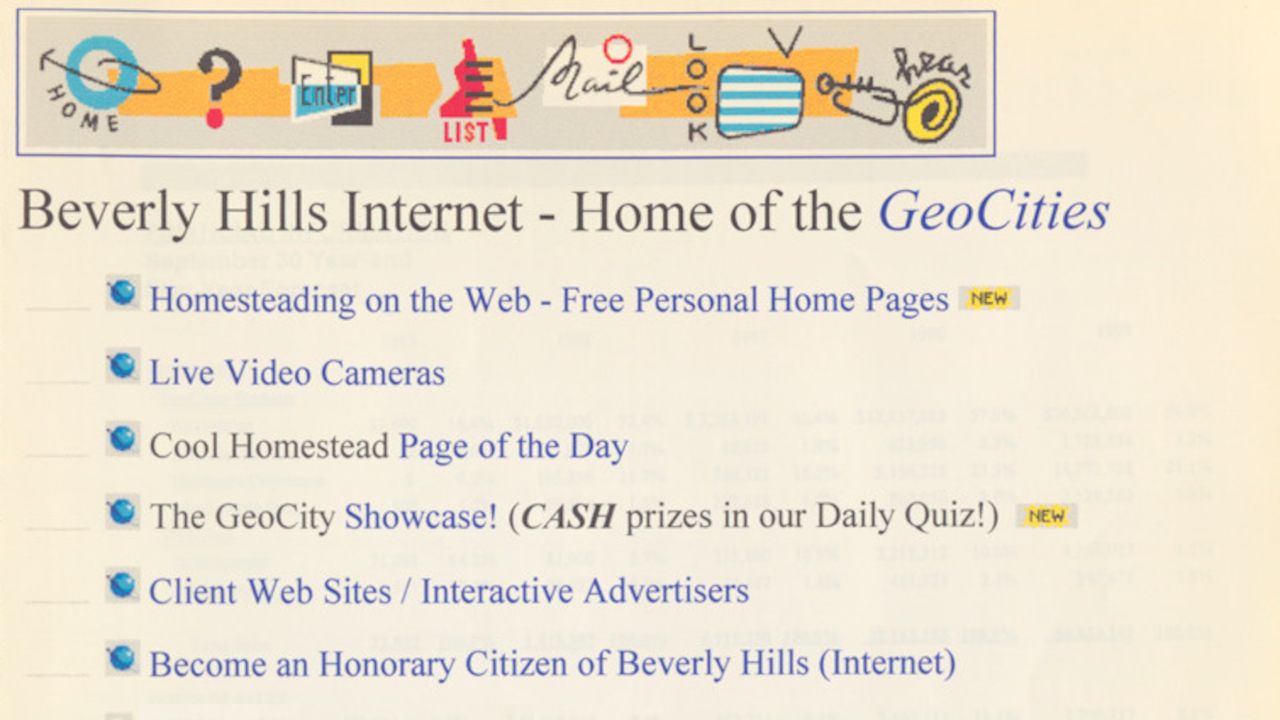
GeoCities in 1995: Building a Home Page on the Internet
GeoCities, known throughout most of 1995 as Beverly Hills Internet, was one of the first commercial internet services to make it easy for people to publish a home page on the World Wide Web.
-
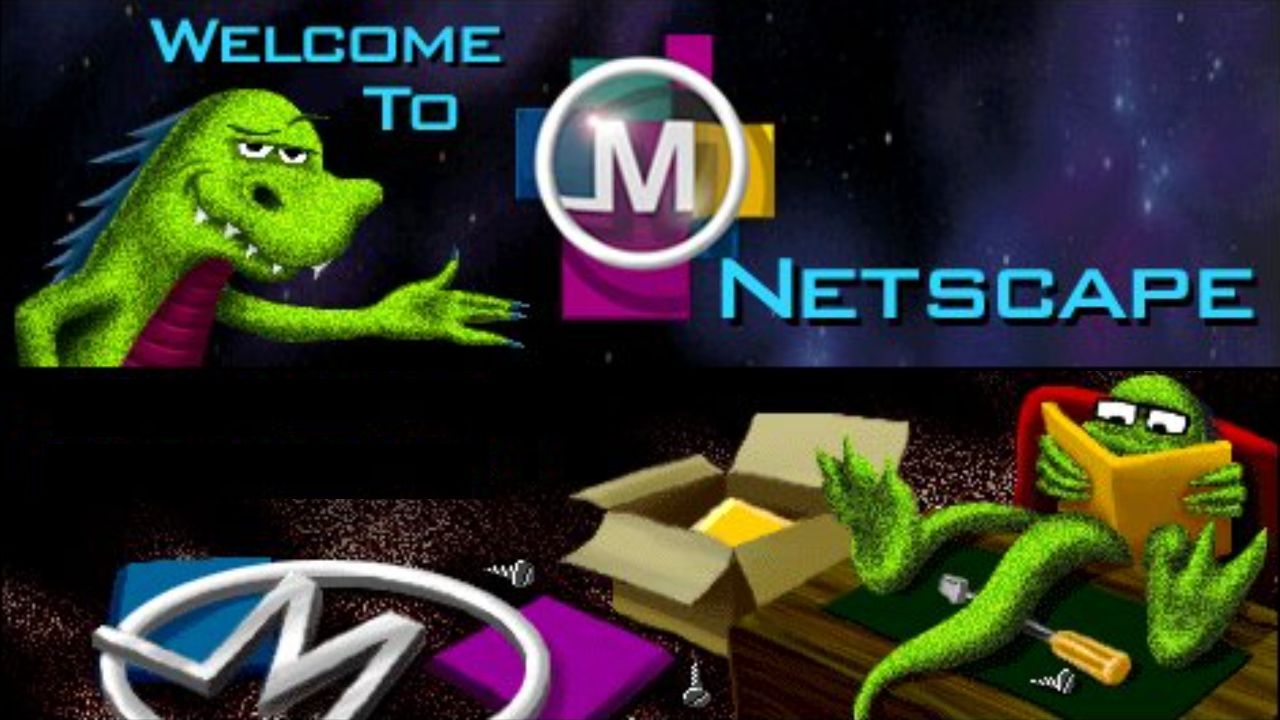
What the Internet Was Like in 1994
In 1994, the World Wide Web became the default multimedia channel of the Internet. With the launch of Netscape Navigator and early websites like Yahoo! and HotWired, the Web achieved lift-off.
-
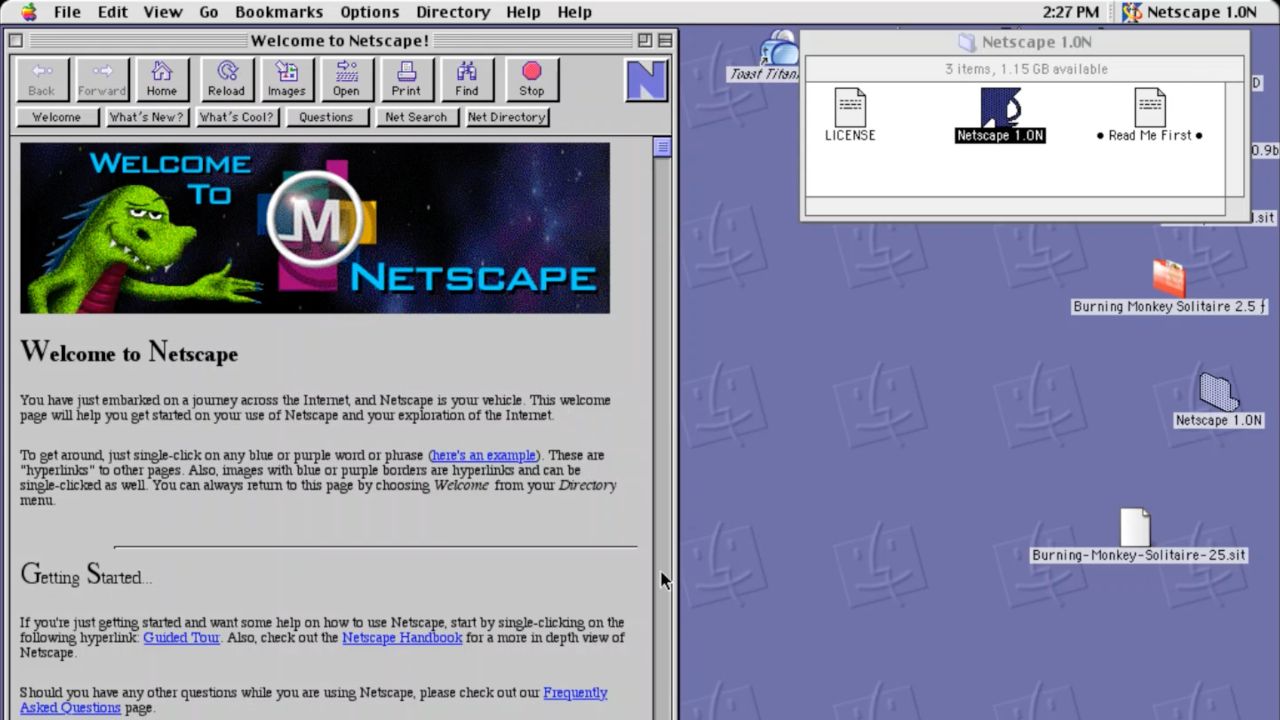
Netscape in 1994: The Rise of the Webuloids
By the time Netscape Navigator was released in December 1994, the World Wide Web was beginning to overcome bandwidth restrictions and live up to its potential as a multimedia portal to the internet.
-
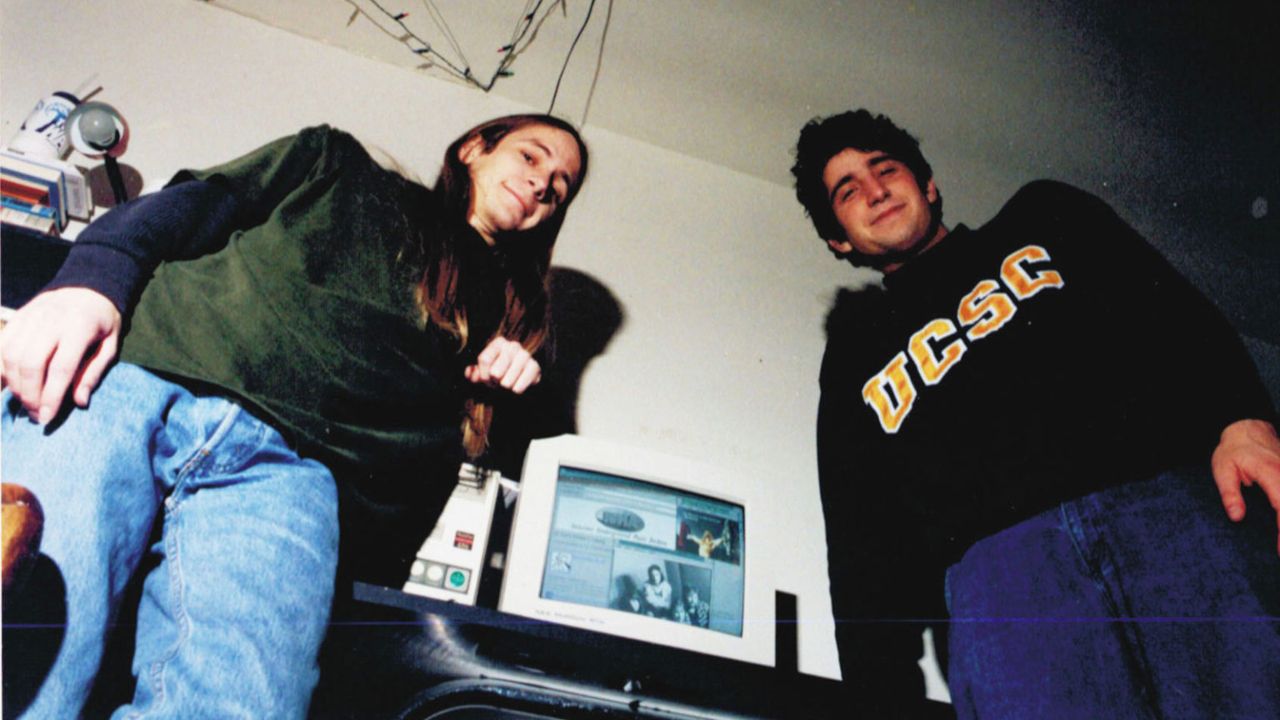
Internet Underground Music Archive in 1994
By early 1994, the Internet Underground Music Archive (IUMA) had migrated from Usenet and Gopher to the emerging internet platform, the World Wide Web. It was one of the first multimedia websites.
-
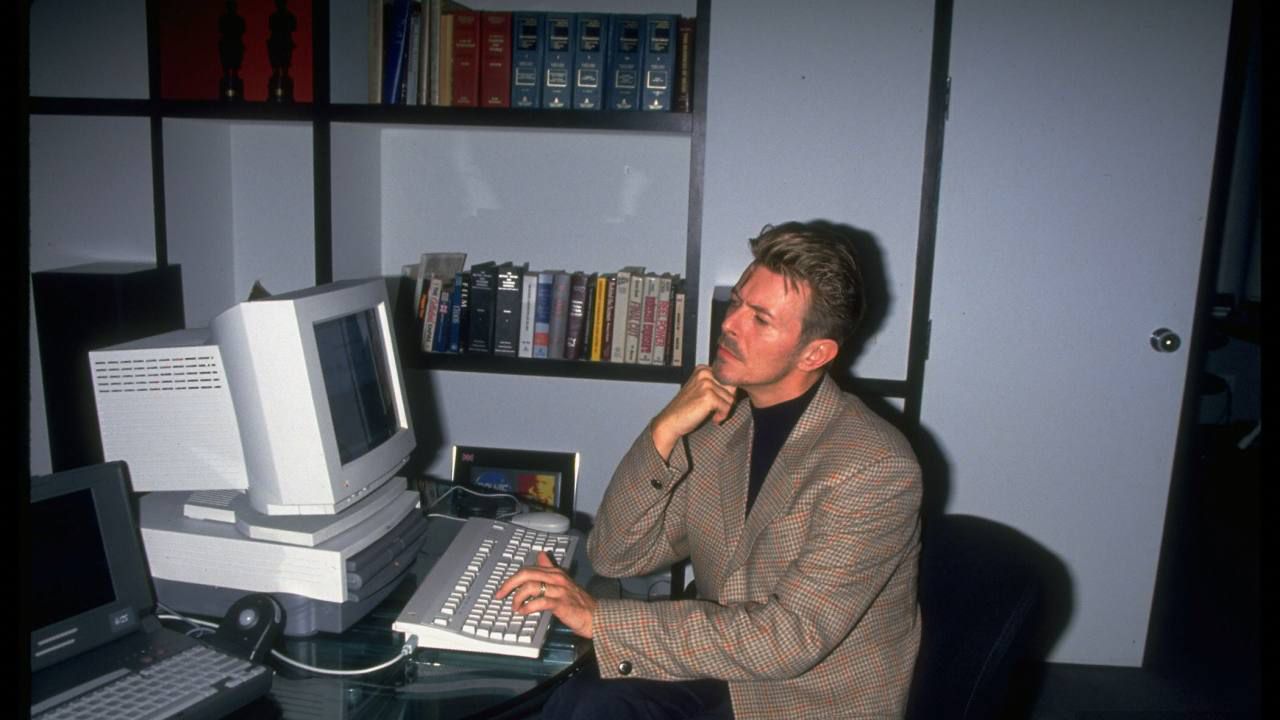
CD-ROMS in 1994: Bowie, Prince, Gabriel, and Cybermania '94
David Bowie, Prince and Peter Gabriel all had interactive CD-ROMs out in 1994, and had plans for further multimedia projects. But by the end of the year, the CD-ROM format was effectively over.
-

Multimedia Gulch in 1994: The Age of Interactive CD-ROMs
Multimedia Gulch was a trendy neighbourhood in San Francisco in the 1990s, home to wannabe rock stars making CD-ROM adventure games. They lived fast in a time of slow modems.
-
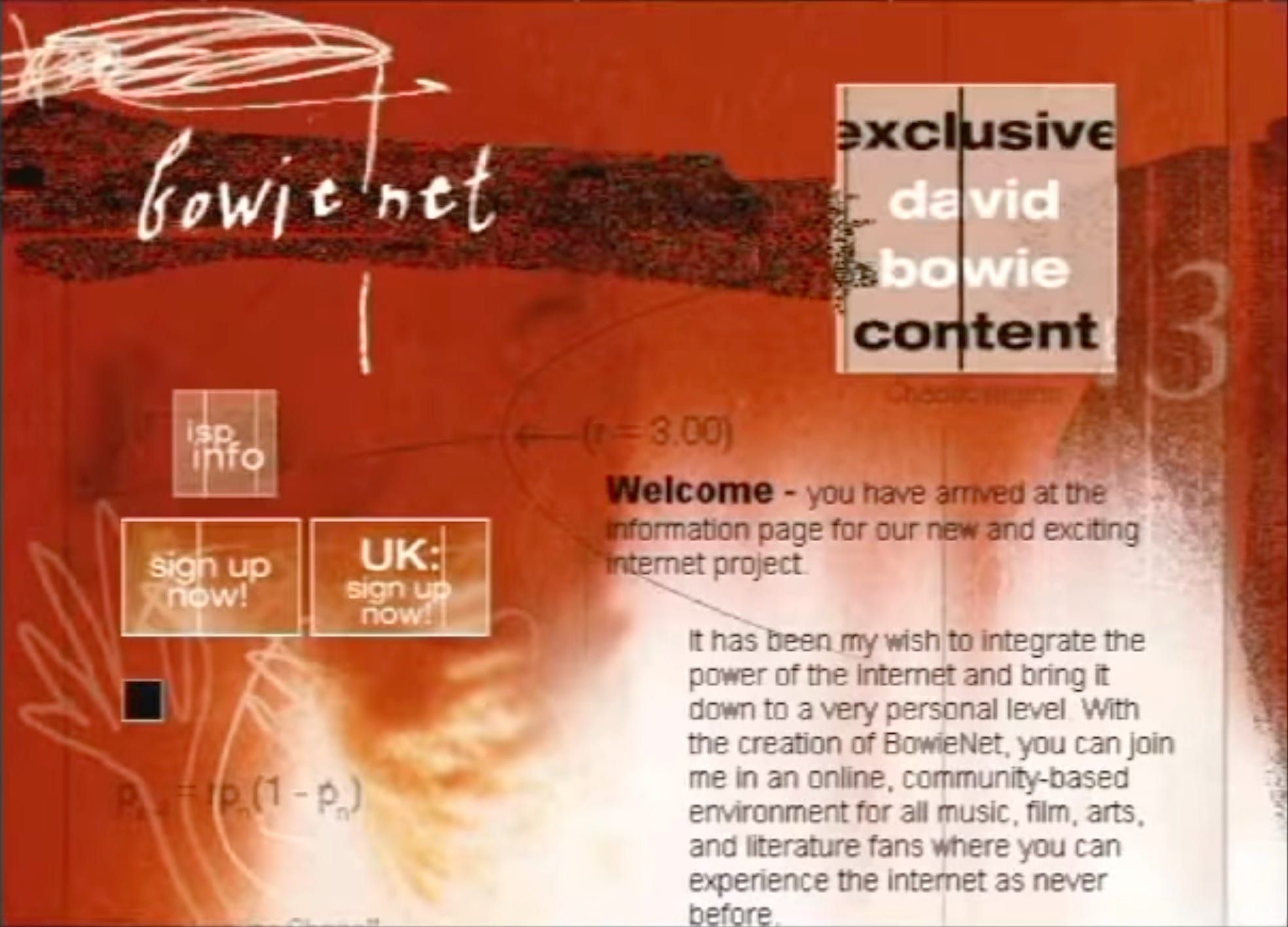
BowieNet: The Inside Story of its Creation
Part web portal, part ISP, part proto-blog, when David Bowie and his web team launched BowieNet in 1998, it was truly revolutionary. Cybercultural interviews one of its creators.